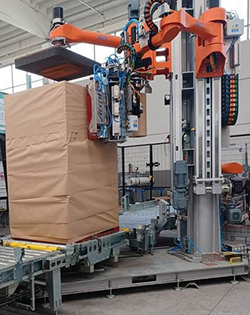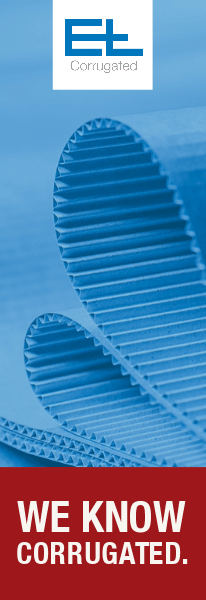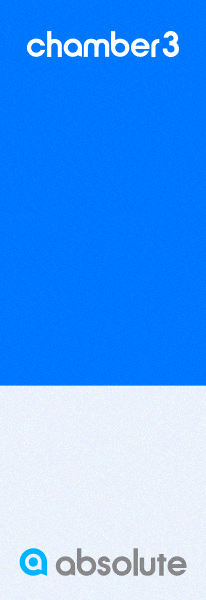Smurfit Westrock’s innovative new paper pallet wrap is helping companies to make their supply chains significantly more sustainable. The paper pallet wrap is manufactured in Smurfit Westrock’s Nervión paper mill in Spain.
 Smurfit Westrock has produced a 100% paper-based alternative to the polyethylene stretch wrap which is commonly used to stabilise pallet loads in transportation. The global stretch wrap market was valued at $4.27 bn in 2023 and is projected to grow significantly.
Smurfit Westrock has produced a 100% paper-based alternative to the polyethylene stretch wrap which is commonly used to stabilise pallet loads in transportation. The global stretch wrap market was valued at $4.27 bn in 2023 and is projected to grow significantly.
The innovative new solution is made from Nertop® Stretch Kraft paper which is fully recyclable. Its capabilities also include high energy absorption and strong performance in humid conditions.
Encirc, a leading glass supplier which manufactures over three billion containers annually, was the first company in the UK to use the new paper wrap. The company named Smurfit Westrock as Sustainability Champion at its partnership day in September in recognition of the big step forward that using the paper wrap represents.
Peter Ball, Head of Planning at Encirc, said, “Sustainability is at the heart of everything we do at Encirc, and it is heartening that 85% of our beverage customers say that our sustainability credentials made them choose Encirc. We recognise how important supply chain solutions are to all our business partners. To this end, Encirc has been working with Smurfit Westrock to replace single-use plastic with a paper alternative, which is a first for the UK glass-making and bottle-filling industry.”
Jemma Jones, National Account Manager, Smurfit Westrock, added, “Like Smurfit Westrock, Encirc is committed to the circular economy and immediately recognised the significant CO2-reducing potential of the paper wrap. If they switched entirely to the paper wrap, it would lead to an extremely significant reduction of emissions. Traditional stretch wrap is the go-to for many companies but our paper-based alternative does as good a job and – vitally – is much easier to recycle at the end of use.”



